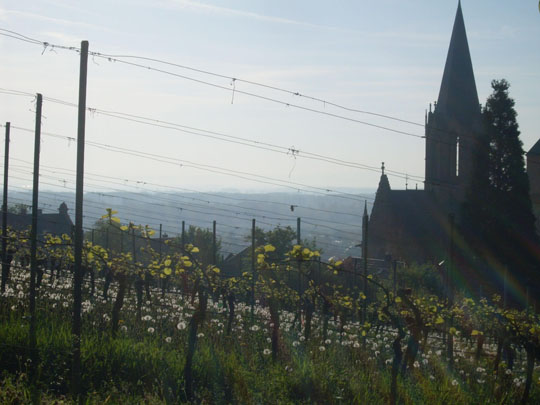It's a breathtaking sight: Between the rigid rows of bare vines, constellations of seeding dandelions glisten silver in the morning light. While the barely budding vines may seem dull in comparison, the golden Rieslings made from last year's grape harvest are glittering with promise in my glass. Spring in Germany is the perfect time to assess the quality of the newly bottled vintage, and I've been invited by the Deutsches Weininstitut (German Wine International) to meet some of the nation's new generation of winemakers, who, with each year's new crop, are redefining the boundaries of what the Riesling grape stands for.
What Germans now prize as stellar wine is very different in style to the treacly, fruit-driven confections made by the previous generation of winemakers. Just as the Protestant movement that began with Martin Luther in the 16th century was to sweep away the ostentatious pomp from churches, laying them bare for a more sober contemplation of the divine, so too has the Riesling grape been stripped of its high sugar levels and more tropical fruit flavors by a new generation of purists, allowing the grape to channel the pure taste of minerals that had been overshadowed by cloying sweetness in the past.
Theresa Breuer, who is responsible for the coordination of production and blending at Weingut (winery) Georg Breuer, typifies this trend and favors wines that are bone dry, with a rich vein of minerality and tight acidity that, unlike many whites, are capable of aging 10 years or more. Breuer owns some choice real estate along the Rhine, including Schlossberg in Rudesheim, which is in a treacherous but priceless position. A slice of soil that sharply inclines down to the Rhine at a point where the great river narrows and deepens, Schlossberg is too steep for machinery and can only be harvested by hand, but it enjoys an incredible microclimate as light reflecting off the river forms a concentrated cone of heat that amplifies the power of the sun, giving the grapes a powerful charge. The slate soil is rich in quartz, the flavor of which is detected in Breuer's delicate handling of the grape.



